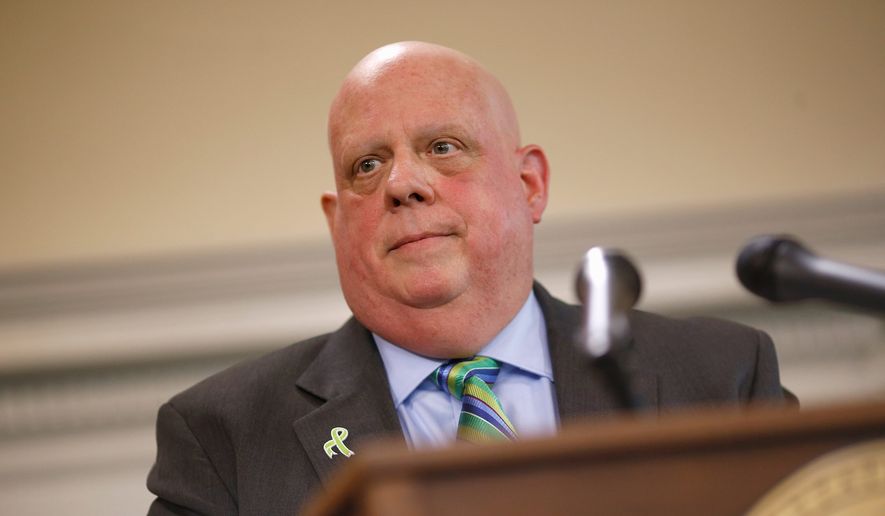ANNAPOLIS | Gov. Larry Hogan wants to put an end to Maryland’s “broken redistricting process” by creating an independent panel to draw the district lines — a move that takes power away from not only the state legislature but also from himself.
Maryland has a reputation for some of the most gerrymandered congressional districts in the country: The state has eight congressional representatives, seven of whom are Democrats, despite Democrats having only a 2-to-1 advantage in the state.
Redistricting reform advocates have said that is due in part to the way the district lines have been drawn, and Mr. Hogan set up a redistricting reform commission last year to come up with ideas to change the process.
Their recommendation: a constitutional amendment that would give power to an independent panel control over how to draw up the state’s legislative and congressional districts and follow criteria based on “population, compactness and natural boundaries,” according to the governor’s office.
To change the state constitution, the Democratic-controlled legislature needs to pass it and then voters need to approve it.
“For too long, fair elections and a healthy, strong, and competitive two-party system have been nearly impossible in our state,” Mr. Hogan said in a statement. “This is about recognizing a problem and choosing to do the right thing to solve it.”
This proposal will likely be met with some resistance from Democratic leaders, who have said they were not interested in changing the redistricting process before national redistricting reform changes that also affected Republican-majority states took place.
Democratic legislative leaders have vowed to resist such redistricting changes, saying they prefer to wait for national redistricting reform that also would affect majority-Republican states.
Thirteen states use something other than the legislature to draw district lines or advise on how to draw those lines, and of those, only California and Arizona have independent commissions. Arizona’s system has been contested and was upheld last year by the U.S. Supreme Court.
Mr. Hogan also proposed legislation to make it easier to prosecute drug traffickers and to mandate painkiller prescriptions to track doctors who overprescribe medication in an effort to help control the state’s growing opioid epidemic.
One bill would align the state’s gang statute with the federal Racketeer Influenced and Corrupt Organization Act so that law enforcement could pursue both criminal and civil penalties for drug traffickers.
His legislation is based on recommendations from the state’s heroin and opioid task force, chaired by Lt. Gov. Boyd Rutherford.
• Anjali Shastry can be reached at ashastry@washingtontimes.com.




Please read our comment policy before commenting.